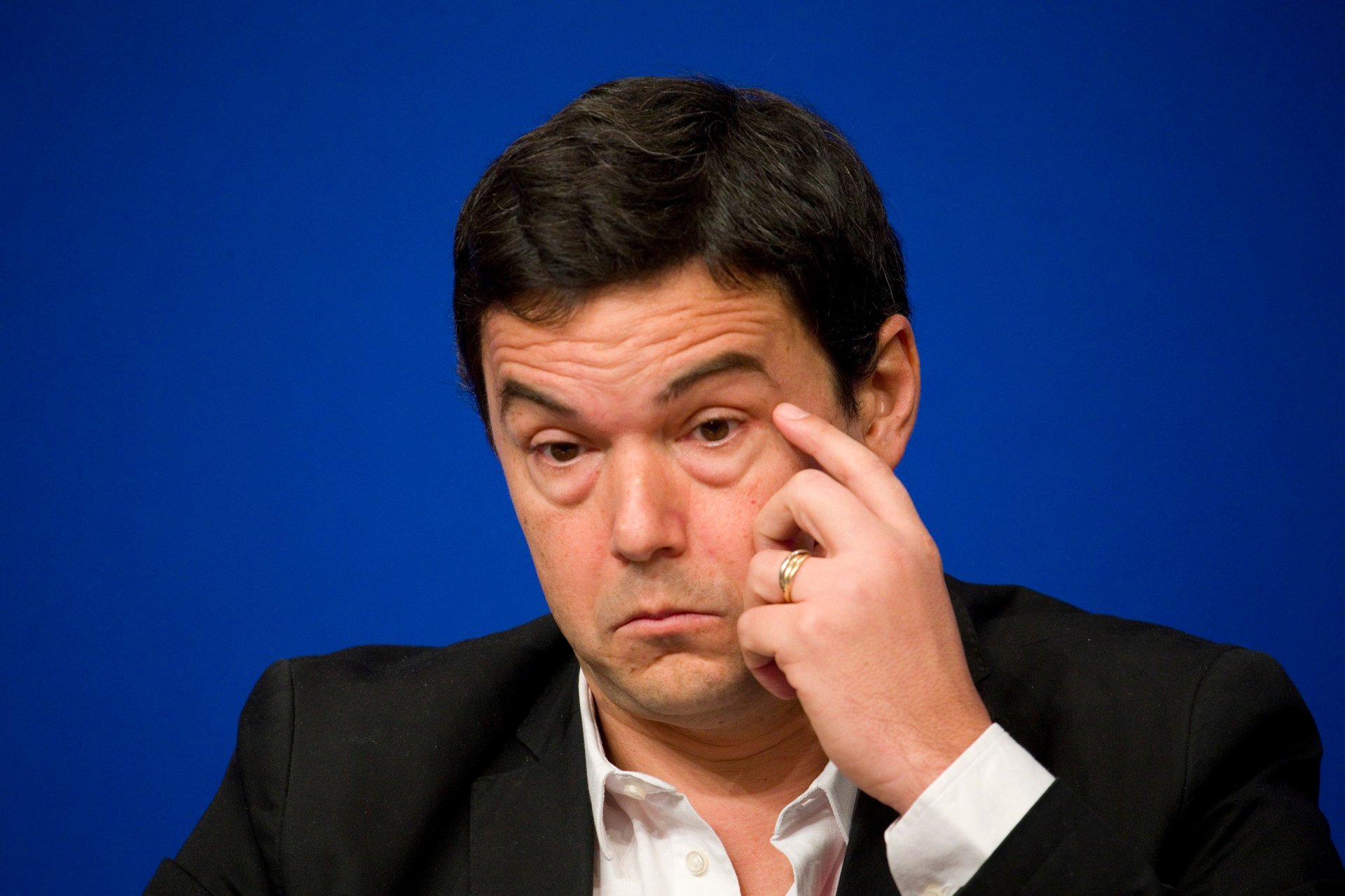Thomas Piketty is cutting ties with the UK’s imploding Labour Party over Brexit
Could UK Labour Party leader Jeremy Corbyn’s week get any worse? He campaigned against Brexit, which didn’t go his way, but he also hardly had any time as leader of the opposition to enjoy the subsequent turmoil in soon-to-be-former prime minister David Cameron’s Conservative Party.


Could UK Labour Party leader Jeremy Corbyn’s week get any worse? He campaigned against Brexit, which didn’t go his way, but he also hardly had any time as leader of the opposition to enjoy the subsequent turmoil in soon-to-be-former prime minister David Cameron’s Conservative Party.
Shortly after the UK voted to leave the EU, Corbyn’s pro-EU party turned on him. The leader, who took over last September, lost a no-confidence vote among Labour MPs yesterday (June 28), but promised to stay on until all Labour party members are given a say at the group’s annual meeting in September. Most of Corbyn’s shadow cabinet has resigned in recent days, and even some of their replacements have already resigned, too—shadow education secretary Pat Glass lasted two days before calling it quits.
One of the biggest names to abandon Labour, though, is star French economist Thomas Piketty. The acclaimed author of Capital in the 21st Century, a book about wealth inequality that unexpectedly became a best-seller in 2014, told Sky News that he was “deeply concerned with the Brexit vote and with the very weak campaign of Labour.” Traditional Labour strongholds across the UK went against their party’s recommendation and voted to leave the EU last week.
Today, the celebrity economist said he was quitting the star-studded economic advisory committee overseen by Labour shadow chancellor John McDonell, which also included the likes of Nobel Prize winner Joseph Stiglitz and Mariana Mazzucato.
The group was supposed to meet every three months to “discuss and develop policy ideas,” but Piketty didn’t attend the first meeting last year. (There are few public details about the group’s work after that.) He told The Independent that his decision to quit was “not because of political disagreement” but “simply because I was never able to find the time to be properly involved in this council”.
Yesterday, former Bank of England policymaker David Blanchflower also quit the council. He later added, of Corbyn, that he has “never spoken to him or communicated with him on anything at all.”
In a statement, the remaining members have agreed to put further meetings on hold until “the dust has settled.” Brexit is “a major disaster for the UK, and we have felt unhappy that the Labour leadership has not campaigned more strongly to avoid this outcome,” they added.
As the UK steers a new course after Brexit, the more centrist elements of the Labour Party believe that they would be better off with new leadership. And even more insulting, perhaps, is the view of prime minister Cameron—in the House of Commons today, he acknowledged that Labour’s disarray following Corbyn’s refusal to step down is good for the Conservatives, but not for the suddenly rudderless country. Staring him down across the aisle, Cameron said: “For heaven’s sake man, go!”